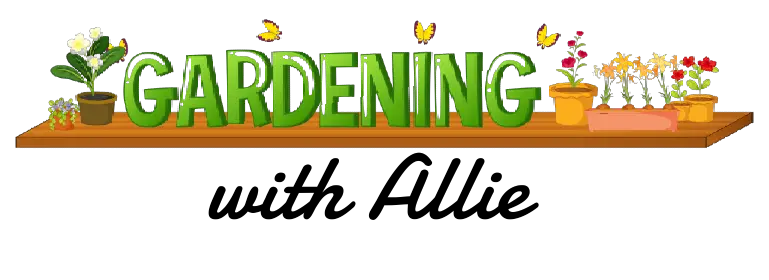When it comes to squash, there are so many different kinds of flavors, shapes, and sizes, and each one is unique and delicious. Squash, in general, is an excellent addition to your garden because it is known for being easy to grow, and you’re sure to get a great harvest. Butternut squash is a warm-season squash; it is hardy and known for having a sweet and nutty flavor.
Butternut squash has a decent yield for a squash plant. Generally, each plant will produce 10-even 20 squashes if they have the right conditions. Having the right conditions is also very important for the plant to begin producing fruit in the first place.
The article below will discuss why your butternut squash is not producing fruit, how to fix this issue, and more!

Why Are My Butternut Squash Plants Not Producing Fruit?
Above, I mentioned that butternut squash needs the right conditions to produce fruit. Let’s take a closer look at all the reasons butternut squash plants aren’t producing fruit.
Pollinators
One of the leading causes is that butternut squash is not producing any fruit because the plants lack pollinators. Butternut squash plants are self-pollinators, meaning they have female and male parts!
They rely on bees, birds, and the wind to carry their pollen to the female flowers to create fruit. Without things like the birds, the bees, and the wind, your plants may not ever have the chance to pollinate.
Time
One thing sometimes people forget about is that plants need time! It may just be that the plant isn’t ready to produce fruit yet, and the cycle for fruiting hasn’t begun.
Below is a growth chart for butternut squash so you’ll know what to expect and when.

Amount of Water
Butternut squash can be temperamental about the amount of water they receive. Butternut squash love a steady flow of oxygen through their roots; when the plants become waterlogged, that oxygen doesn’t flower properly. This leads to stunted growth, root rot, and lack of fruit.
Soil Nutrients
With a picky watering schedule, butternut squash is also a heavier feeder. They thrive best with soil rich in nutrients. Without the right amount of nutrients, the plant will suffer, and you will see things like stunted growth, root rot, and lack of fruit.
Pest Issues
The final item on the list is pests. Pests love squash and, if not taken care of quickly, can do a lot of damage in your garden. Squash bugs, cucumber beetles, and vine borers are some of the bugs that may be attacking your butternut plants and causing the plants not to want to produce any fruit.
How to Get Butternut Squash Plants to Start Producing Fruit
Now that we have discussed the causes of butternut squash, not fruiting let’s look at how we can fix these issues.

Pollinating
There are a few things you can do to fix your pollination issues. Start by planting your butternut squash plants at least 24 inches apart. The space between the plants encourages female flower growth. Next, you can plant things in your garden to try and lure in things like birds and bees to get them to also land on your squash flowers.
Zinnias and marigolds are some excellent flowers that can be planted in or around a squash garden. Lastly, you can hand pollinate. Hand pollinating is just doing the job that the birds and the bees would do. All you have to do is, take a q-tip and rub it on and around the male squash flower.
Carefully, take the same q-tip and rub it inside the female squash flower. You can repeat this process as often as you’d like, and make sure you do it multiple times a day until you begin seeing results.
Timing
If time is your issue, all you can do is wait. Butternut squash takes around 110-120 days to fully mature. You should start seeing flowers appear on the plant around days 35-40. It may take up to a week until you start seeing fruit start growing from the flowers. Keep track of the days since you’ve planted your squashes to ensure everything is moving swiftly.

Watering
Above, I said that butternut squash could be tricky to water. Generally, they need only about 1 inch of water a week. Since butternut squash can be planted in the spring, the rainwater usually will be just fine for squash plants.
However, if it is warm out and your area doesn’t have any rain, try to water your plants every three days and give them a deep soak.
Nutrients
The best thing to ensure that your butternut squashes have nutrients is to ensure the initial soil is a well-balanced fertilizer. Butternut squash enjoys a balanced NPK, something like 10-10-10 or 4-4-4, all throughout their growing process.
You can feed butternut squash plants weekly to maintain their nutrient intake. Once the plant begins to fruit, you can ease back on the nitrogen and do something like 3-5-5 or 6-10-10.
Pests
Unfortunately, we cannot control the bugs that decide to live in our garden. Even the most skilled gardener could find themselves with an infestation out of nowhere. Pests that may cause butternut squash not to want to flower are squash bugs, cucumber beetles, and vine borers.
They can send the plant into shock, making it not want to give off any fruit. Luckily, pests can be stopped.
| Pests | How To Stop Them |
| Squash Bugs | Since squash bugs are large, the best way to get rid of them is to pick them off and dispose of them in warm soapy water. Do the same with any egg masses you see. |
| Cucumber Beetles | Diatomaceous Earth or Neem oil are excellent things to lay around your butternut squash. Both products make it very hard for the bugs to move around in it, making them want to leave the area right away. |
| Vine Borers | Vine borers are nasty larvae looking bugs that crawl through the stems of plants. To remove them, you can split open a vine with a sharp knife, and simply pick out the vine borer. Sprinkle diatomaceous earth inside the split, bury the open split when done. Sprinkle more diatomaceous earth around your garden. |
Final Thoughts
Although it can be a pain when your butternut squash plants are not producing any fruit, it is not the end of your garden. There are plenty of ways to try and encourage fruit production, and hopefully, eventually, you will start seeing tiny squash begin to grow. Happy gardening!

Hi there, my name is Allie and welcome to my blog; GareningWithAllie!
Much of what you see written here is just our personal experiences with gardening. Along with the content I write here, there is also a unique collection of gardening topics covered by some of our close friends. I hope you find everything you read here to be helpful, informative, and something that can make your gardening journey the most lovely experience ever! With that said, Happy Gardening!
